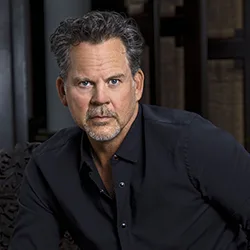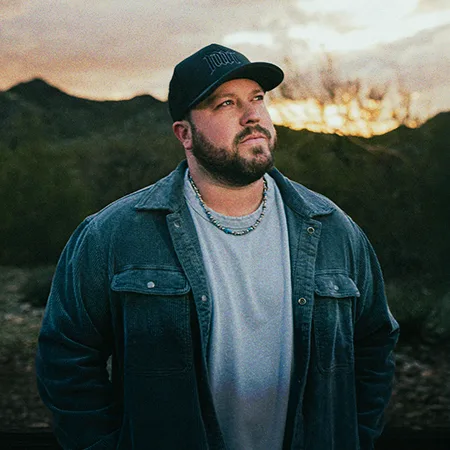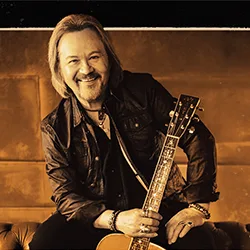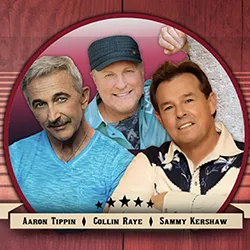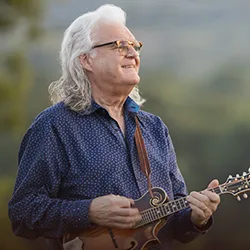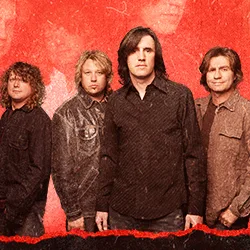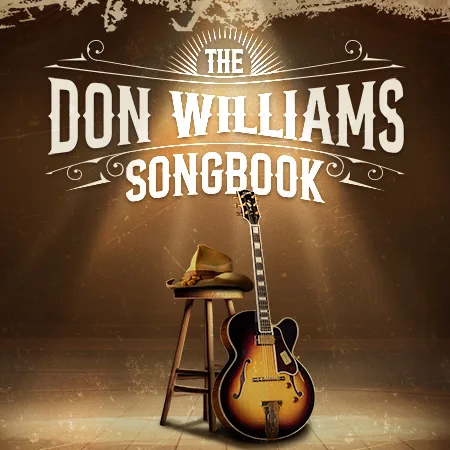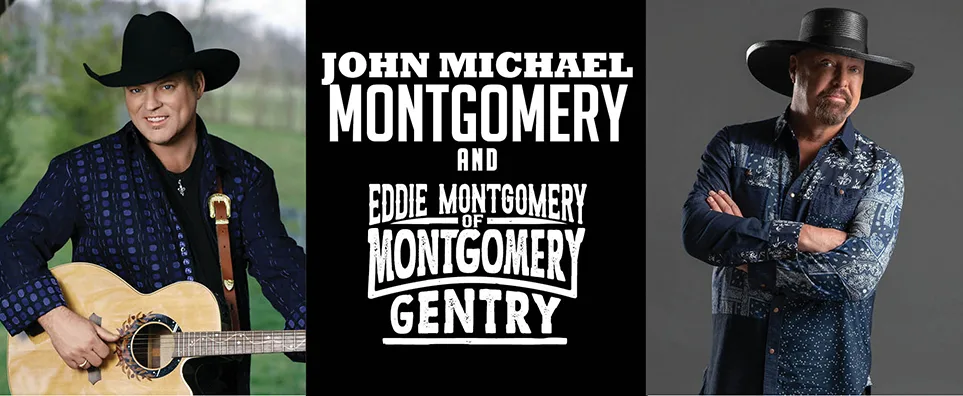

John Michael Montgomery & Eddie Montgomery of Montgomery-Gentry
-
DateApr 27, 2024
-
Event Starts7:30pm
-
Doors Open6:30pm
-
AvailabilityPast Event
-
LocationBlue Gate PAC
760 S Van Buren St
Shipshewana, IN 46565
-
Seating ChartView Seating Chart (If you are paying with a gift card, you must call to purchase tickets 260.768.4725)
Apr 27, 2024
Saturday @ 7:30pm
Event Details
John Michael Montgomery
JMM has turned an uncanny ability to relate to fans into one of country music's most storied careers. Behind the string of hit records, the roomful of awards and the critical and fan accolades that have defined his phenomenal success lies a connection that goes beyond his undeniable talent and his proven knack for picking hits. Since the days when "Life's A Dance" turned him from an unknown artist into a national star, John Michael's rich baritone has carried that most important of assets--believability. Few artists in any genre sing with more heart than this handsome Kentucky-born artist.It is readily apparent in love songs that have helped set the standard for a generation. Songs like "I Swear," "I Love the Way You Love Me" and "I Can Love You Like That" still resonate across the landscape--pop icon and country newcomer Jessica Simpson cited "I Love The Way You Love Me" as an influence in a recent interview. It is apparent in the 2004 hit "Letters From Home," one of the most moving tributes to the connection between soldiers and their families ever recorded, and in "The Little Girl," a tale of redemption that plumbs both the harrowing and the uplifting. It is apparent even in the pure fun that has always found its way into John Michael's repertoire--songs like "Be My Baby Tonight" and "Sold (The Grundy County Auction Incident)," where John Michael's vocal earnestness takes musical whimsy to another level.
Now, with the release of Time Flies, which he co-produced with Byron Gallimore, John Michael takes another big step forward, strengthening his position as one of the most versatile and compelling vocalists on the country scene. With songs like "Forever" and "If You Ever Went Away," he proves he is still the master of the power ballad, a man capable of bringing honest emotion to life in song. He brings his ever-present sense of humor to bear on "With My Shirt On" and "Mad Cowboy Disease," songs with wickedly skewed sensibilities. With songs like "Drunkard's Prayer" and "All In A Day" he explores two dramatic facets of human existence, and with "Brothers Till The End," John Michael celebrates the family background that led both him and his brother Eddie, of Montgomery Gentry, from a small-time family band to the top of the charts.
The emotional centerpiece for John Michael is "All In A Day," the song that contains the lyric that gave the album its name.
"That song talks about how time flies," he says, "and I got to thinking that it seems like yesterday that 'Life's A Dance' was out and people were asking me, 'Where would you like to be in 10 or 15 years?' 'Still here!' was my answer and, thankfully, I am still here. Longevity was more important to me than anything else, and to still be able to do something I love so much is wonderful. Still, it's gone by so quickly that I thought, 'I'm going to build an album around that.' That's where the shape of this album comes from."
Each song, he says, reminds him of an era in his life and an artist or style of music. "What Did I Do" is reminiscent of "the gritty Hank Jr. stuff we played in our honkytonk days," while "Loving And Letting Go" "reminds me a bit of Lionel Ritchie and the Eagles, artists that helped mold me into the artist I am today."
Beyond that, he maintains, he selected material the way he always has.
"When I go after songs," he says, "it's almost like we're looking for each other. It's like digging for rocks until now and then I find the shape I'm looking for, and one by one I see how they fit together and where it's all going."
It is never, he adds, a matter of second-guessing his fans.
"I always told myself that if I ever figured out what made the fans tick and what it was about me that they liked, I'd bottle it up and I'd own the most successful record label in the world."
The irony surrounding that tongue-in-cheek assessment is that John Michael has indeed founded his own label--Stringtown Records, named for a hamlet near his Kentucky home. He is one of a handful of long-established stars able to take the next step and become label executives as well as artists. John Michael launched Stringtown after parting company with his last label, at a time when major and larger independent record companies in Nashville were retrenching and consolidating.
"I didn't know where those labels were going," he says with a grin, "but I knew where I wanted to go. I felt like it was time to branch out on my own. I had learned the executive side of this business enough to start my own label, and I knew that there were going to be a lot of great executives looking for work as the labels downsized."
Now that he has launched Time Flies, he is looking to expand Stringtown's reach.
"I'll continue making records for myself," he says, "but I'd also love to find other artists to produce, hoping I can open some doors and make some dreams come true like mine did. I love finding hit records and producing them, and I see that down the road for myself."
It is a vision whose origins lie in deceptively modest beginnings. John Michael Montgomery was born in Danville, Kentucky, to parents who imparted a lifelong love of music.
"Where most people have chairs and sofas in their living rooms," laughs John Michael, "we had amplifiers and drum kits."
The family band played on weekends throughout the area, and John Michael and his brother Eddie eagerly soaked up everything about it.
"To a certain extent," he says, "my dad always had a natural ability to draw fans and entertain people; I don't care if it was on the front porch, the living room, or on a stage. I think that transitioned to me and my brother being able to do that on stage."
John Michael took over lead singing chores after his parents divorced, and he performed for a while in a band called Early Tymz with Eddie and their friend Troy Gentry. Nashville talent scouts began hearing about and then seeing John Michael perform and by the early '90s he had a record deal.
The hits followed steadily, with songs like "Rope The Moon," "If You've Got Love," "No Man's Land," "Cowboy Love," "As Long As I Live," "Friends" and "How Was I To Know" establishing him as one of the elite acts of the era. He received the CMA Horizon award and was named the ACM's Top New Vocalist, setting off a long series of awards that included the CMA's Single and Song of the Year, Billboard's Top Country Artist, and a Grammy nomination. Heavy touring meant he kept the close touch with fans he had begun in the clubs back home.
"You get to know your fans and what they like more and more through the years," he says, "and you kind of gravitate towards one another."
Indeed, he has always had an extraordinarily close relationship with his fans, and they have stayed with him through good and bad times.
Just before launching Time Flies, John Michael let them know that he was entering treatment to deal with an addiction that was an outgrowth of anxiety and insomnia.
"Luckily, I woke up one day and said, 'I've had enough. I need some help with this thing.' The hardest thing for most people to do is ask for help. I had felt claustrophobic on the bus to the point where I didn't want to get on it, and now I enjoy getting on the bus a lot more."
That, of course, is great news for both John Michael and his fans, and he is back out continuing the legacy of performance that has kept him going since he was a boy.
"We were weekend players at the beginning, and then it turned into five nights a week," he says. "Then we got record deals, and we were still 'weekend superstars,' only now it was on much bigger stages."
Asked what he thinks gave him the edge in a career that calls millions but gives stardom to just a few, he pauses, then thinks back to the legacy of his parents.
"I reckon it was good genes and good blood," he says with a smile. Few who know the depth and breadth of his own growing legacy would disagree.
Eddie Montgomery
You might catch Eddie Montgomery taking a quick glance at an empty space beside him when he and The Wild Bunch take the stage to play the expected duet hits as well as tunes from his brand-new and mostly raucous solo debut "Ain't No Closing Me Down."By tragic circumstance a solo artist, Eddie always feels the presence of Troy Gentry, his honky-tonking partner back to the days they played for beer or a chunk of flesh at a pig roast near their eastern Kentucky roots.
"I think he'll have a blast with it, man," says Eddie of his late partner. "I think he's a part of it already. I'm sure he'll be with me." The man who is always "with" Eddie on stage and immersed in the soul of his first solo album is his long-time partner, Troy Gentry, who died Sept. 8, 2017, in a helicopter crash that could have put a tragic end to Montgomery Gentry sound. Except Eddie made a promise that the MG sound would go on: Which, at its heart, is what this new album is all about.
Rowdily honed in honky-tonks and at parties in their Kentucky homeland, Montgomery Gentry rocked to stardom in 1999 with propulsive collection "Tattoos & Scars." Over the next 18 years, the duo had 20-plus charted singles, collected CMA, ACM and Grammy nominations and awards with such unsubtle, blue-collar rallying cries as "Hell Yeah," "My Town" and the irrepressible "Hillbilly Shoes."
Their No. 1s included "If You Ever Stop Loving Me," "Something to be Proud Of," "Lucky Man," "Back When I Knew It All" and "Roll With Me." Grand Ole Opry members since 2009, MG also belong to the Kentucky Music Hall of Fame, where they join the likes of Bill Monroe, Tom T. Hall, Skeeter Davis, Lionel Hampton and Eddie's brother, John Michael Montgomery.
The last name on that list - "John Boy," as Eddie refers to his brother - was with the other two young men when they tore up roadhouses and pig roasts, following the career path carved out by the Montgomery boys' dad and his outfit, "Harold Montgomery and Whatever You Wanted To Call It." The heart of that outfit: Harold on guitar and mom, Snookie, on drums. "Me and John Boy were roadies," says Eddie. "We seen a lotta things in honky-tonks... The bartenders were our babysitters, and we moved around a lot. I must've had my mid-life crisis by the time I was 8."
"I'm happy where I'm at." And part of the reason for that happiness is that he always has his best friend to lean on: "Troy is always with me. He helped me write this album with my heart and soul." Eddie continues describing how this new album was birthed after he knew it was time to go on as the M without the G. "I was just wanting to wait until it felt right for me, and when it come to me in my heart, with Troy and myself.
"Ain't a day goes by that I don't think of him," he says. "We made a promise, a deal, way back when. It was over Jim Beam. It was: If one of us goes down, we want Montgomery Gentry to go on. Keep the music going. We were a honky-tonk band, and he's with me, and he's always going to be." He smiles. "We were together so much, we finished each other's sentences and everything," a brotherhood that remains in his solo billing: "It's always going to be 'Eddie Montgomery of Montgomery Gentry.'"
In fact, The Wild Bunch - the outfit that rode the range with MG for years -- provides accompaniment with this album, a change from the past, when Eddie says Music Row session players would be called in.
It is both a tribute to his late friend as well as the sonic bridge for the guy who hopes to carry this legacy well into the future. "I wanted to showcase our band. I wanted music that's real and in your face." Even though he was fulfilling a promise to Troy, Eddie took a year off after the accident to ponder how and if he'd carry on. The COVID pandemic gave him an extra year-and-a-half. With the help of some of Nashville's best honky-tonk-flavored writers, he has fashioned an album that is both a tribute to the past and a rowdy reach into the future. "I wanted to comfort my soul and have the greatest writers help me put it together." Much of the soul-salvation can be found in the song, "Alive and Well."
"It's pretty much my life," he says of the song that salutes his best friend as well as two sons who are gone. "One died quite a few years ago. I lost my other son a year before, the same month as Troy. September is not my favorite month." While it is a farewell, it also is a promise to keep going, the promise he delivers in the rest of the album. "When I wrote that song, it helped my heart. It helped me a little bit, I reckon, to heal the wounds. But the scar is always there."
The promise to keep on going is proclaimed in full MG-style in the first cut, "Ain't No Closing Me Down," a rock-driven dose of barroom braggadocio that sprung from his holing up at home located on the outskirts of a golf course during the pandemic. "After the corona hit, I got a bunch of grills and stuff. I pulled my truck out of the garage. I was puttin' up TVs, got a PA in my garage. I got one of those glass, commercial refrigerators in there. And people started coming to the house."
While the world was shut down, Eddie welcomed all comers. Nobody was closin' him down. Golfers would climb off the course to visit, joining other friends from miles around. "I'd always be grilling. They'd come up and grab a hamburger or some ribs, a Jim Beam and a beer."
Some songs offer even more hope, like "Ain't She Beautiful," which isn't about his "smokin'-hot wife," but rather about the nation he cherishes. John Boy's son, Walker Montgomery, wrote that one, and Uncle Eddie happily recorded it. "It was a great honor for me to cut my nephew's song. I don't think I coulda wrote it any better. I love this country. It's the greatest country on earth. I love our great American heroes. I don't care who decides to try to destroy it, it's going to keep on going, because it's the only place you can decide what you want to do, who you want to be."
Other songs include "Higher," a duet with Tanya Tucker: "What an honor, singing with Miss Tanya. When I hear it, I don't even listen to me singing, I listen to her." "That's the Kinda Man I Am" is about attitudes and beliefs inherited, sometimes by force, from his mom and dad. "I believe in the man upstairs, and I believe in our freedoms," he says, adding the most painful lessons were in learning how to do the right thing. "You did something wrong, you got your ass busted by a belt. One of the hardest things I ever hit in my life was Mama's backhand."
"My Son" is a cautionary tale he co-wrote with producer Noah Gordon for the soundtrack of a movie called "Old Henry," a bit of Pat Garrett and Billy the Kid fantasy. But the song means a lot more to Eddie, the father who lost two sons. "A lot of it is going back into my soul. I taught them how to live. Taught them that some of the stuff I chased, I probably shouldn't have. Like my old man said 'Son, do as I say, don't do as I do.'"
And there are plenty of fun songs, like "Play That Game," inspired by honky-tonk mating dances he witnesses from the stage. "Kickin' It Up" and "Sounds Like a Tuesday" join the ranks of lighthearted songs.
His familiar voice breaks a bit when talking about "She Just Loves Me," both a thank you and a love note to his wife, Jen Jen, and her devotion. "It's the first love song I've ever written. I'm in love with her. She's been there to pick me up when I felt down. I can't say enough about her." In fact, she was the first one to hear the rough version, after Eddie made an acoustic demo and took it up to the house. He didn't want to sing it to her, because "I wasn't for sure I could get through it, singing in front of her." So, he played her the demo and "It freaked her out."
It was enough of a reason for celebration that they went to the club and did - as they rarely do - "act like teenagers." "Now it takes me two days to recover," he says. "My daddy always told me that would happen."
The man with the thick, honky-tonk voice and hell-raising reputation, the same fellow who salutes the death of his best friend in this album, admits that things change when a guy ages. "I'm more into staying home and piddling in my garden and stuff."
Still, after he parks the garden rake and dons that wide-brimmed black hat, straps on a guitar and climbs onstage with The Wild Bunch, "it's kind of like old times." Except T Roy is missing. Or is he? "He's right there on stage, every time I hit it. He'll always be there.
"I like writing about everyday life: The good, the bad, the ugly and the party on the weekend. We know life has got a bunch of ups and downs. Stuff's gonna happen, or you can keep your ass up on the porch. "Me and T Roy, we always lived life. You live life and make sure you do, 'cause it won't be here tomorrow."
Plan Your Visit:▼
Parking: Free parking is available at the venue. Please have patience and be respectful when leaving our parking lots after the show.
Ticket Office: For ticket sales and assistance with ticket orders, please visit our box office or call 260-768-4725. Box Office hours are Monday thru Saturday, 10am to 7pm. All ticket sales are final and non-refundable, no exception.
Tickets: Your phone is your ticket. Make sure you have downloaded your ticket before arriving at the venue to present at ticket check. Will Call tickets can be picked up at the box office window, and you must present a photo ID. If you need your tickets printed for any reason, visit the venue box office prior to entering ticket check. Tickets that include a dining package will need to be printed prior to visiting the restaurant since they serve as your dining voucher.
Rain or Shine Events: All events are rain or shine. In the event of hazardous weather during an event, please follow the safety directions given by venue staff and displayed on digital screens.
Bag Policy: For safety and efficiency, we recommend entering without a purse or bag at our venues. If essential items are needed, we encourage guests to bring them in a small, clear purse. All non-clear purses will be searched, and this will be enforced upon entry at our Performing Arts Center. Diaper Bags for families with small children and bags with required medical items are permitted. No oversized purses, tote or duffel bags, or backpacks of any type will be allowed.
Prohibited Items: Please review the prohibited items list before you come to an event. This list can be found on our FAQ page.
Concessions: Refreshments are available for purchase within the venue. No outside food, candy, or beverages are allowed.
Bar Service: We do have beer and wine service available at most of our PAC concerts. Hours of service vary, depending on show schedule, but the bar is typically open for at least 90 minutes once doors are open.
No Smoking: Smoking and vaping are strictly prohibited inside the venue.
Safety and Security Policies: All members of your party must have a ticket to enter the venue. All individuals entering the facility are required to go through a security screening which includes metal detection and checking bags for prohibited items. These security screenings may vary on some events, so please refer to your "Know Before You Go" email to plan your visit accordingly. Re-entry is not permitted without a ticket. For a complete list of prohibited items and venue policies, visit our FAQ page.
Accessibility: For complete information on our services, please visit the Accessibility section of our FAQ page.
Dining Packages: Buffet dining at our Blue Gate Restaurant can be added to any ticket price for your convenience. Price would include meal but not gratuity. To ensure guests have time to dine, we suggest arriving no later than 2 hours prior to show time, in case the restaurant is on a wait.
Hotel Reservations: If you need hotel accommodations, consider staying at our Blue Gate Garden Inn – adjacent to the Performing Arts Center! For more information and to check availability, visit https://www.bluegategardeninn.com/ or call 260.768.4725.
For more information, simply visit our FAQ page.
Ticket Office: For ticket sales and assistance with ticket orders, please visit our box office or call 260-768-4725. Box Office hours are Monday thru Saturday, 10am to 7pm. All ticket sales are final and non-refundable, no exception.
Tickets: Your phone is your ticket. Make sure you have downloaded your ticket before arriving at the venue to present at ticket check. Will Call tickets can be picked up at the box office window, and you must present a photo ID. If you need your tickets printed for any reason, visit the venue box office prior to entering ticket check. Tickets that include a dining package will need to be printed prior to visiting the restaurant since they serve as your dining voucher.
Rain or Shine Events: All events are rain or shine. In the event of hazardous weather during an event, please follow the safety directions given by venue staff and displayed on digital screens.
Bag Policy: For safety and efficiency, we recommend entering without a purse or bag at our venues. If essential items are needed, we encourage guests to bring them in a small, clear purse. All non-clear purses will be searched, and this will be enforced upon entry at our Performing Arts Center. Diaper Bags for families with small children and bags with required medical items are permitted. No oversized purses, tote or duffel bags, or backpacks of any type will be allowed.
Prohibited Items: Please review the prohibited items list before you come to an event. This list can be found on our FAQ page.
Concessions: Refreshments are available for purchase within the venue. No outside food, candy, or beverages are allowed.
Bar Service: We do have beer and wine service available at most of our PAC concerts. Hours of service vary, depending on show schedule, but the bar is typically open for at least 90 minutes once doors are open.
No Smoking: Smoking and vaping are strictly prohibited inside the venue.
Safety and Security Policies: All members of your party must have a ticket to enter the venue. All individuals entering the facility are required to go through a security screening which includes metal detection and checking bags for prohibited items. These security screenings may vary on some events, so please refer to your "Know Before You Go" email to plan your visit accordingly. Re-entry is not permitted without a ticket. For a complete list of prohibited items and venue policies, visit our FAQ page.
Accessibility: For complete information on our services, please visit the Accessibility section of our FAQ page.
Dining Packages: Buffet dining at our Blue Gate Restaurant can be added to any ticket price for your convenience. Price would include meal but not gratuity. To ensure guests have time to dine, we suggest arriving no later than 2 hours prior to show time, in case the restaurant is on a wait.
Hotel Reservations: If you need hotel accommodations, consider staying at our Blue Gate Garden Inn – adjacent to the Performing Arts Center! For more information and to check availability, visit https://www.bluegategardeninn.com/ or call 260.768.4725.
For more information, simply visit our FAQ page.
More Shows You'll Like:
